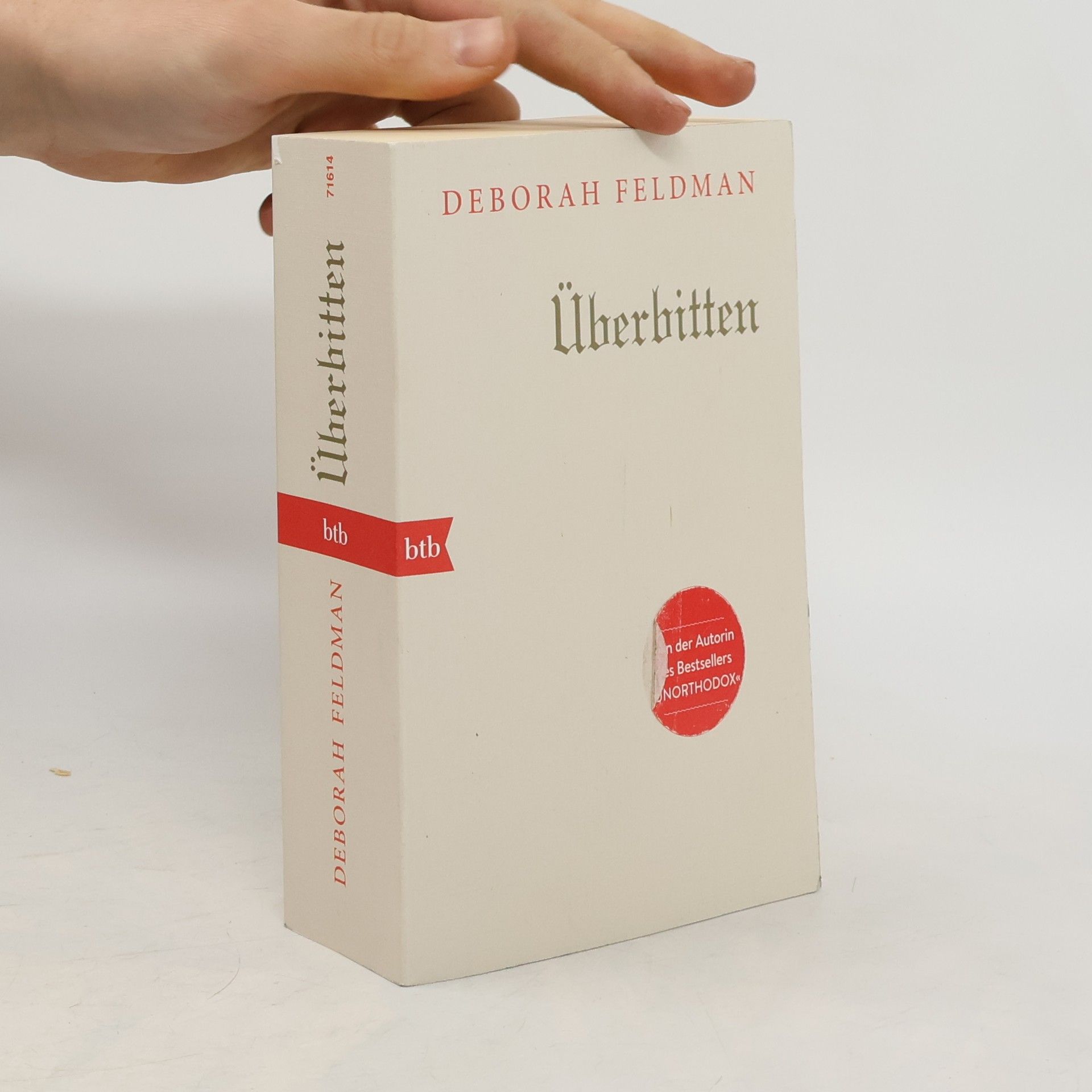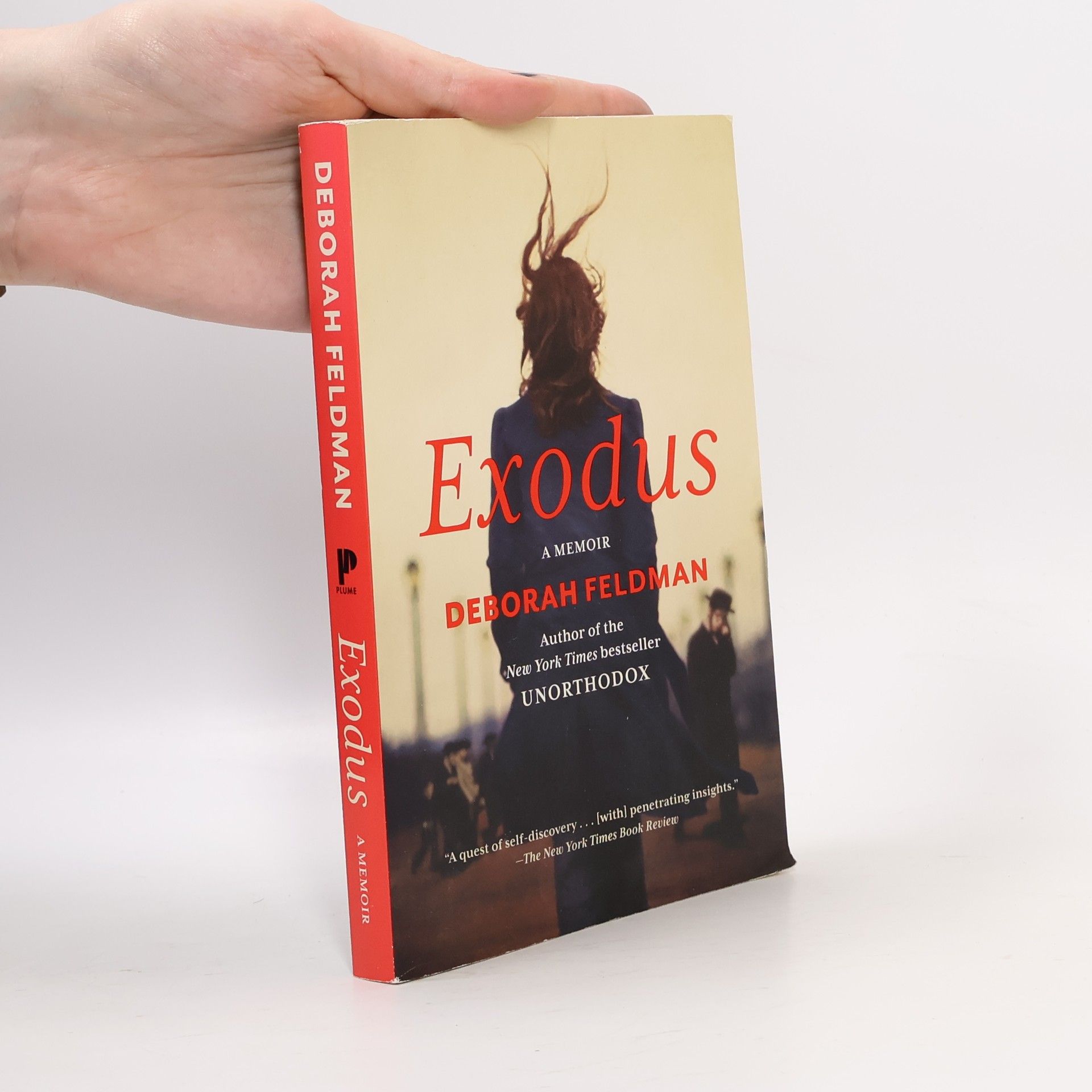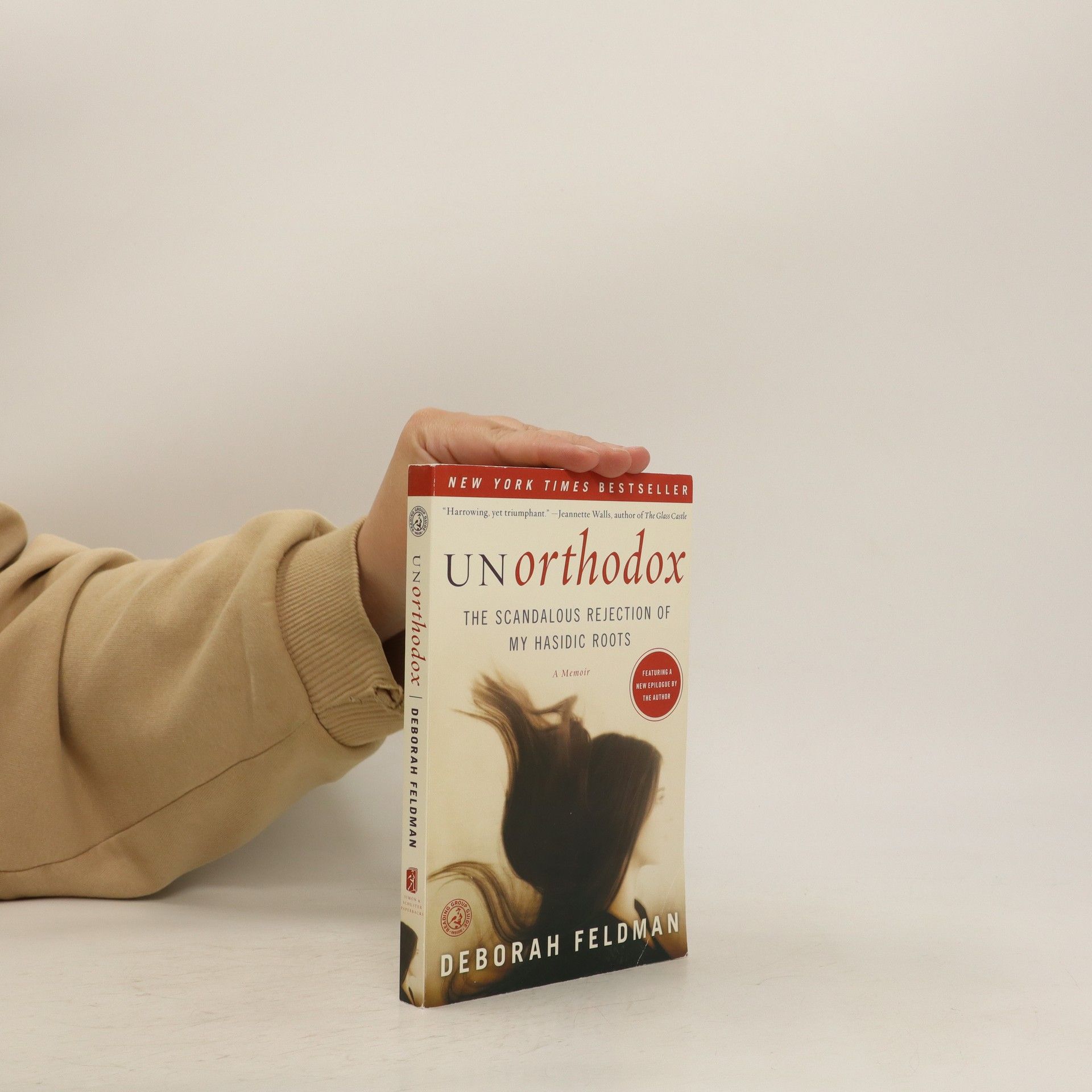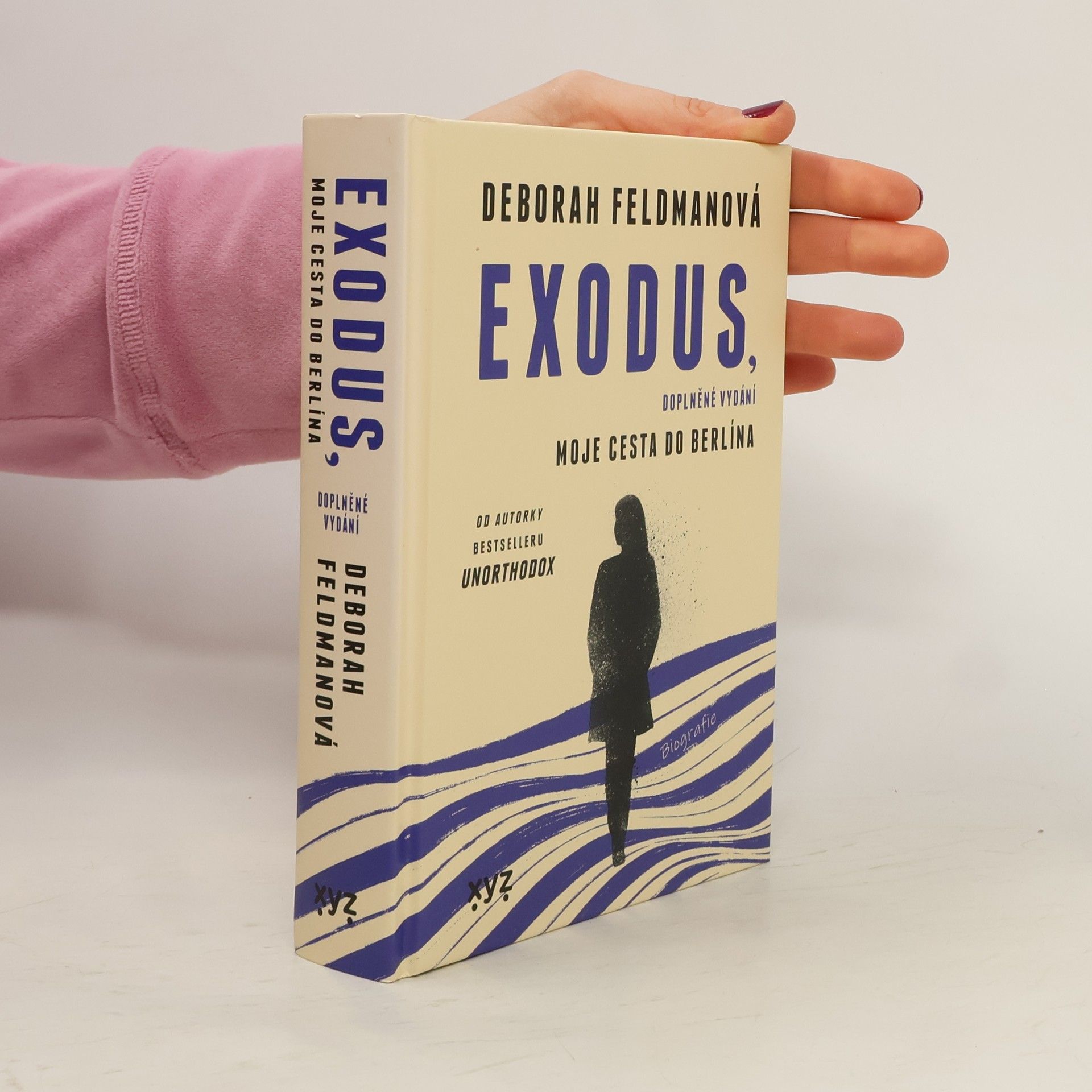Moje cesta do Berlína Pokračování úspěšného románu Unorthodox autorka původně sepsala už v roce 2014, nyní se však ke svému příběhu vrátila a výrazně jej rozšířila. Co se stalo poté, když v roce 2009 vzala život do svých rukou, odešla spolu se svým malým synem z ortodoxní sekty chasidských Židů a zamířila do světa? Deborah cestovala po Americe i Evropě a nakonec zakotvila v nejnepravděpodobnějším ze všech měst… Doplněné vydání knihy Exodus přináší ucelený vhled do její snahy objevit sebe sama a nalézt svůj skutečný domov.Co se stalo poté, co Deborah Feldmanová opustila náboženskou sektu a vyrazila vstříc svému vlastnímu životu? Ve třiadvaceti letech sbalila svého malého syna, pár věcí a odešla daleko od útlaku a izolace své ortodoxní výchovy v brooklynském Williamsburgu. Začíná znovu jako svobodná matka, uprchlice a nezávislá žena, která hledá komunitu, kam by mohla patřit… Nejprve se vydává do New Yorku, cestuje po Spojených státech, po celé Americe a nakonec zamíří do Evropy, aby zmapovala život své babičky před holocaustem a během něj – a konečně nachází své místo v nejnepravděpodobnějším ze všech měst… Pokračování úspěšného románu Unorthodox autorka původně sepsala už v roce 2014, nyní je však výrazně rozšířila. Doplněné vydání knihy Exodus je tak hluboce dojemným zkoumáním povahy paměti i generačního traumatu a silným příběhem o nalézání smíru se sebou samotným i s celým světem.
Deborah Feldman Knihy
Deborah Feldman se narodila a vyrostla v chasidské komunitě Satmar ve Williamsburgu v Brooklynu. V sedmnácti letech byla provdána a o dva roky později se jí narodil syn. V pětadvaceti letech vydala bestseller New York Times s názvem "Unorthodox: The Scandalous Rejection of My Hasidic Roots". Feldman se ve své tvorbě zabývá tématy identity, svobody a hledání vlastního místa ve světě. Její literární styl je často popisován jako upřímný a silný, plný osobních reflexí a pozorování. Dnes žije se svým synem v Berlíně v Německu, kde pokračuje ve své psací dráze a přispívá k diskuzi o kulturních a společenských otázkách.







Skutečný příběh současné Židovky. Deborah prožila celý svůj život ve fanatické náboženské sektě chasidských Židů v americkém Williamsburgu. Bylo jí diktováno, jak se bude oblékat, co bude smět číst a koho si v sedmnácti letech vezme za muže. Jednoho dne se však dívka svému naplánovanému osudu vzepřela a rozhodla se vzít život do vlastních rukou. Strhující životopis Deborah Feldman se rázem po vydání stal bestsellerem a byl zfilmován společností Netflix.
Unorthodox
- 272 stránek
- 10 hodin čtení
This book traces the author's upbringing in a Hasidic community in Brooklyn, describing the strict rules that governed her life, arranged marriage at the age of seventeen, and the birth of her son, which led to her plan to leave and forge her own path in life.
The definitive follow-up to Unorthodox (the basis for the award-winning Netflix series)—now updated with more than 50 percent new material—the unforgettable story of what happened in the years after Deborah Feldman left a religious sect in Williamsburg in order to forge her own path in the world. In 2009, at the age of twenty-three, Deborah Feldman packed up her young son and their few possessions and walked away from her insular Hasidic roots. She was determined to find a better life for herself, away from the oppression and isolation of her Satmar upbringing in Williamsburg, Brooklyn. And in Exodus, Revisited she delves into what happened next—taking the reader on a journey that starts with her beginning life anew as a single mother, a religious refugee, and an independent woman in search of a place and a community where she can belong. Originally published in 2014, Deborah has now revisited and significantly expanded her story, and the result is greater insight into her quest to discover herself and the true meaning of home. Travels that start with making her way in New York expand into an exploration of America and eventually lead to trips across Europe to retrace her grandmother’s life during the Holocaust, before she finds a landing place in the unlikeliest of cities. Exodus, Revisited is a deeply moving examination of the nature of memory and generational trauma, and of reconciliation with both yourself and the world.
Exodus
- 304 stránek
- 11 hodin čtení
The author of the explosive New York Times bestselling memoir Unorthodox (now a Netflix limited series) chronicles her continuing journey as a single mother, an independent woman, and a religious refugee. In 2009, at the age of twenty-three, Deborah Feldman walked away from the rampant oppression, abuse, and isolation of her Satmar upbringing in Williamsburg, Brooklyn to forge a better life for herself and her young son. Since leaving, Feldman has navigated remarkable experiences: raising her son in the “real” world, finding solace and solitude in a writing career, and searching for love. Culminating in an unforgettable trip across Europe to retrace her grandmother’s life during the Holocaust, Exodus is a deeply moving exploration of the mysterious bonds that tie us to family and religion, the bonds we must sometimes break to find our true selves.
Die Fortsetzung des SPIEGEL-Bestsellers und der gleichnamigen erfolgreichen Netflix-Serie „Unorthodox“ Mit 23 verlässt Deborah Feldman die ultraorthodoxe chassidische Gemeinde der Satmarer Juden in Williamsburg, New York, und damit das Leben, das sie in »Unorthodox« so packend erzählt hat. Die Möglichkeit zurückzukehren hat sie nicht. Sie folgt ihrem großen Traum, gemeinsam mit ihrem Sohn in Freiheit zu leben. Sie verlässt New York und folgt den europäischen Spuren ihrer geliebten Großmutter, die den Holocaust überlebt hat und die die einzige Person war, bei der sich die junge Frau angenommen fühlte. Schließlich gelingt es Deborah Feldman, Wurzeln zu schlagen, ausgerechnet in Berlin, dem Ort, der durch die Satmarer mit so vielen Ängsten und Vorurteilen verbunden war. Bildstark, wortgewaltig erzählt Deborah Feldman die beeindruckende Geschichte einer Selbstfindung und Versöhnung mit der Vergangenheit.
Von der Autorin des Weltbestsellers »Unorthodox« Ja, Berlin war es, das neue Leben in Deutschland war es, der Grund, warum plötzlich all diese Fragen in mir aufzogen. Ich hatte mich vom Thema jüdischer Identität in der Gegenwart weitgehend verabschiedet, ich wollte nur Mensch unter Menschen sein, Berliner unter Berlinern. Wie weit ist mir das überhaupt gelungen? Wie habe ich es auszuwerten, dass dieses Deutschwerden, worum ich mich so fleißig bemüht habe, mich zu meinem Judentum wieder zurückschob wie zu einer unerfüllten Pflicht, die kein Vertagen mehr duldet? Was bedeutet “Jüdischsein” heute? Deborah Feldman, von Holocaust-Überlebenden in den USA erzogen und ausgerechnet nach Deutschland emigriert, über einen Begriff, der immer auch eine Zuschreibung, eine Begrenzung, eine Projektion ist, im Negativen wie im Positiven. Ihre Auseinandersetzung mit ihrem kulturellen Erbe – und der damit verbundenen Last – beinhaltet auch das Bestreben, das Jüdischsein in etwas Größeres, Diverseres, Humaneres einzubinden. Es ist ein Plädoyer für mehr Gemeinsamkeit über Grenzen hinweg – und eine Ermutigung an alle jene, die sich aus der Falle von Gruppenzwängen befreien wollen, um ihre Identität frei und selbstbestimmt zu definieren.
